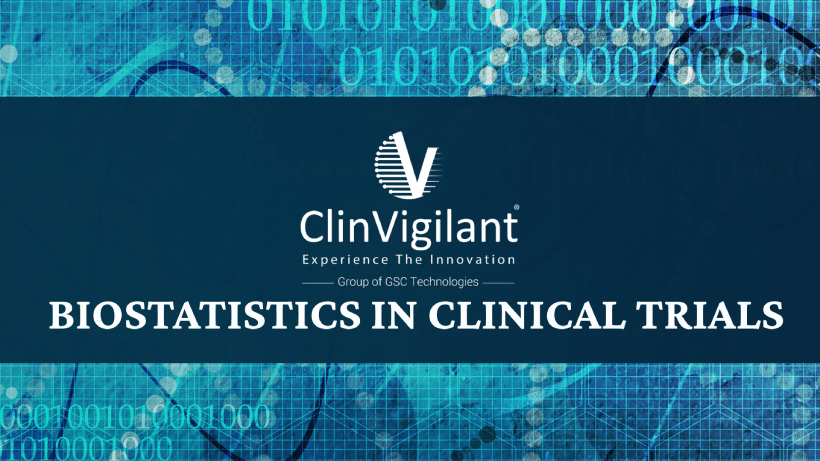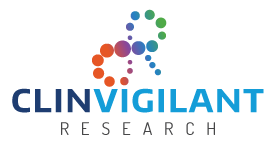Biostatistics plays a pivotal role in contemporary clinical research. It provides the quantitative tools and statistical methods to collect, analyze and interpret data from clinical trials and health studies. Without biostatistics, it would be impossible to draw reliable conclusions from clinical data.

Why Biostatistics is Crucial for Evidence-Based Healthcare
In recent years, evidence-based medicine has become the gold standard for optimal healthcare. The goal of evidence-based medicine is to apply only healthcare practices and solutions that are supported by well-designed medical research and statistical evidence. This ensures effective and consistent patient care guided by facts, rather than opinions or conventions.
Biostatistics clinical trials make evidence-based medicine possible by enabling practitioners to quantify and analyze clinical data. Statistical analysis helps establish causality, measure the effectiveness of treatments, model disease progression, and much more. Without biostatistics, the evidence in evidence-based medicine simply wouldn’t exist.
Purpose of This Guide
This guide aims to provide a high-level overview of biostatistics and its role in clinical research. It explains key concepts and introduces common statistical methods used to collect, summarize, analyze and extrapolate clinical data. The goal is to equip healthcare professionals without a statistical background with core biostatistical knowledge to better understand clinical study designs and results.
The Basics of Biostatistics in Clinical Research
Biostatistics for clinical trials is the application of statistical techniques to clinical research data. It includes the design of studies, quantification and analysis of data, and statistical inference to derive conclusions. Professionals who work in the field of biostatistics are known as biostatisticians.
Key Concepts and Terminology
Understanding biostatistics requires grasping a few key terms:
- Population vs Sample: The population refers to the entire group that is of interest in the study. The sample is the subset of the population that is selected for analysis.
- Descriptive vs Inferential Statistics: Descriptive statistics summarize and describe the characteristics of a sample. Inferential statistics draw conclusions about the population using the sample data.
- Data Types:
- Nominal data groups observations into categories without an inherent order
- Ordinal data has a clear order but no measure of difference between categories
- Interval data shows order and accounts for differences in value but has no true zero point
- Ratio data possesses all qualities of interval data, plus a true zero point
The Importance of Data Collection and Quality Control
High quality data is crucial for sound biostatistical analysis. Great care must be taken in designing data collection protocols, safeguarding against missing or inaccurate data, and ‘cleaning’ data prior to analysis.
Study Design and Sampling
Experimental vs Observational Studies
Biostatisticians help design rigorous clinical studies to minimize bias:
- Experimental studies involve direct intervention by researchers and are considered the gold standard. Examples are randomized controlled trials.
- Observational studies simply observe outcomes that occur naturally without direct interference. Examples are cohort and case-control studies.
Randomization and Blinding
Biostatisticians may use techniques like randomization and blinding to reduce bias in clinical studies:
- Randomization randomly allocates subjects into groups to evenly distribute confounding factors
- Blinding conceals group assignments from subjects and/or researchers to minimize bias
Sample Size Determination
Biostatisticians help determine optimal sample sizes to generate statistically significant results and accurate inferences about the population. Larger sample sizes produce more reliable results but are costlier to obtain.
Ethical Considerations
Biostatisticians must ensure clinical studies adhere to ethical guidelines for informed consent, patient privacy, risk minimization and other protections mandated by review boards.
Data Presentation and Clinical Study Statistics
Graphical Representation of Data
Biostatisticians may use visual graphs to easily comprehend clinical data:
- Histograms show the distribution and frequency of variable values
- Box plots depict distributional skew and outlier points
- Scatter plots visualize correlations between two variables
Measures of Central Tendency
These Statistics In Clinical Trials describe the central position of a dataset’s distribution. Examples include:
- Mean – arithmetic average of all values
- Median – middle value separating upper and lower halves of the distribution
- Mode – most frequently occurring value
Measures of Variability
These statistics describe the dispersion of a dataset. Examples include:
- Range – difference between maximum and minimum values
- Variance – average squared deviations from the mean
- Standard Deviation – most commonly used measure of dispersion
Probability and Probability Distributions
Understanding Probability
Probability measures the likelihood of an event. It ranges from 0 (impossible) to 1 (certain). Basic axioms govern mathematical probability.
Common Probability Distributions
Continuous variables commonly follow these distributions:
- Normal Distribution – symmetric bell curve, the most common distribution
- Binomial Distribution – describes binary outcomes over multiple trials
- Poisson Distribution – predicts event rates over an interval of time or space
Hypothesis Testing
Formulating Research Hypotheses
Hypotheses make specifiable predictions that can be tested statistically, e.g.:
- Null hypothesis (H0): There is no difference between treatment A and B
- Alternative hypothesis (HA): Treatment A is superior to Treatment B
Null and Alternative Hypotheses
The null hypothesis assumes no effect or difference. The alternative hypothesis is the desired outcome that research evidence can support or reject.
Significance Level (alpha)
The significance level is the threshold p-value for rejecting the null hypothesis. Typical levels are 0.05, 0.01 or 0.001.
p-values and Statistical Significance
The p-value represents the probability of obtaining results as or more extreme than observed if the null hypothesis is true. If p < alpha, results are deemed statistically significant.
Common Statistical Tests
Different tests determine statistical significance:
- t-tests compare means between two groups
- Chi-squared tests analyze categorical data
- ANOVA compares means across multiple groups
Interpreting Test Results
Biostatisticians determine which statistical test to use, carry it out correctly, and interpret the results in context of the clinical study.
Confidence Intervals
Confidence intervals provide a range of plausible values for an unknown population parameter based on sample statistics. Wider intervals indicate less precision.
Calculating Confidence Intervals
Confidence intervals can be calculated using sample statistics, standard error, the desired confidence level and the critical value from a probability distribution.
Interpreting Confidence Intervals
95% confidence intervals are commonly reported. There is a 95% chance that the true population parameter lies within the calculated range.
Regression Analysis
Regression estimates statistical relationships between variables to predict outcomes. It models how changes in independent variables impact a dependent variable.
Linear Regression
Linear regression predicts continuous outcomes based on the linear influence of predictor variables. It assumes a straight-line relationship.
Logistic Regression
Logistic regression predicts binary categorical outcomes, like disease/no disease, based on one or more predictors. It assumes a sigmoidal relationship.
Multiple Regression
Multiple regression incorporates multiple predictor variables. It can reveal how those variables independently or jointly impact the outcome variable.
Interpreting Regression Results
Key regression outputs include coefficient estimates, R-squared values, p-values for variables, confidence intervals, and predictions.
Survival Analysis
The Basics of Survival Analysis
Survival analysis examines and models the time it takes for an event of interest to occur, like death or disease recurrence. Censored observations are those for which the event was not observed.
Kaplan-Meier Survival Curves
These plots estimate survival over time from observed data. They account for censored observations. The curves descend as cumulative survival worsens over time.
Hazard Ratios
Hazard ratios compare risk between groups. A HR of 2 means the first group has double the instantaneous risk of the outcome compared to the second group.
Meta-Analysis
A meta-analysis statistically combines data from multiple independent studies investigating the same clinical question. This increases statistical power and improves estimates.
The Steps Involved
Key steps include:
- Formulating inclusion criteria
- Literature search for relevant studies
- Assessing study quality and bias
- Extracting and combining effect sizes using specialized software
- Analyzing heterogeneity between studies
The Advantages and Limitations of Meta-Analysis
Meta-analysis yields more robust statistics by combining data from multiple smaller studies. However, it is only as good as the quality of the original studies. Garbage in, garbage out.
Data Management and Software
Meticulous data preparation and management ensures data quality for sound biostatistical analysis. Steps include data cleaning, validation, merging datasets, transforming variables, etc.
Common Statistical Software Packages
- R is popular open-source statistical software
- SAS and SPSS are commercial packages with advanced biostatistics capabilities
Reporting and Publishing Results
Ethical Considerations
Researchers must adhere to ethical obligations when reporting findings, including disclosing conflicts, detailing limitations, and avoiding misrepresentation.
The Structure of a Research Paper
Papers present key statistical results aligned to the study aims. Sections include Introduction, Methods, Results, and Discussion. Tables, figures and statistics support findings.
The Peer-Review Process
Submitted manuscripts are rigorously critiqued by experts before publication. Biostatistical methods and interpretation of results are checked for soundness.
Practical Applications of Biostatistics
Case Studies and Examples
Real-world examples bring biostatistical concepts to life. For instance, seeing Kaplan-Meier curves depicting patient survival or reviewing the statistical methods in a landmark clinical trial paper.
Real-World Implications in Clinical Research
Practical biostatistical applications include:
- Designing feasible clinical trials and studies
- Power and sample size calculations
- Randomization and blinding
- Data analysis and statistical testing
- Modeling treatment effects and risks
- Assessing diagnostic accuracy of medical tests
Ongoing Developments in Biostatistics
Biostatistics continues to evolve with advances like personalized medicine, big data analytics, predictive modeling, and data visualization. Training in emerging techniques ensures biostatisticians stay relevant.
Conclusion
Biostatistics provides the essential data analytic tools to generate medical evidence and guide clinical practice. It continues to expand in scope and sophistication. New biostatistical techniques propel clinical research forward in the era of big data and precision medicine. Biostatisticians must stay abreast of the latest developments. This guide only scratches the surface of biostatistics. To apply biostatistics in real-world research or practice, comprehensive training and hands-on experience are necessary. However, the foundation established here provides a springboard to launch into deeper biostatistical learning for clinical applications.
Why ClinVigilant biostatistical services for your clinical trial?
ClinVigilant’s Biostatistics Consulting services provide critical support for the design, execution, analysis, and reporting of clinical trials. Their experienced biostatisticians are involved throughout the entire clinical trial process, from initial protocol development to final statistical analysis and reporting.
During the protocol development stage, ClinVigilant biostatisticians provide input on study design, sample size calculations, randomization methods, and statistical analysis plans. This helps ensure the trial is properly powered to detect meaningful treatment differences and uses appropriate statistical methods. Once a trial is underway, ClinVigilant biostatisticians monitor patient enrollment, data quality, and interim analyses.
They identify potential issues early so any necessary adjustments can be made. At the conclusion of a trial, ClinVigilant biostatisticians conduct comprehensive statistical analyses in accordance with the pre-specified plan. They generate tables, listings, figures, and other outputs to summarize key efficacy and safety data. Their expertise in regulatory statistical analysis and reporting ensures trial results are presented accurately and effectively to support regulatory submissions.

